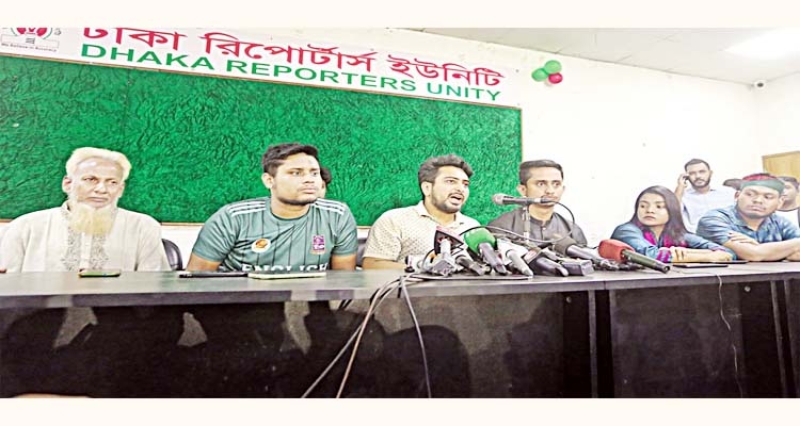- Bangladesh Heads to First Gen Z-Driven Competitive Poll |
- EC Lifts Mobile Phone Ban, Bars Photos Inside Booths |
- Youth participation vital to BD’s democratic future: C’wealth Group |
- Stocks retreat on week’s first trading day as turnover drops |
- Free education for girls up to honours if BNP wins: Zubaida Rahman |
Movement will continue until demands met: Quota-reform leaders

In a fresh 48-hour ultimatum issued to the government, leaders of the anti-discrimination student movement have vowed to continue their campaign until their four-point 'urgent' demand is met. At a press conference on Tuesday, they welcomed the Supreme Court verdict on the quota system in government jobs but called for an inquiry commission to properly address the issue.
"We initially presented an eight-point demand based on unfolding situations. Later, we prioritized four urgent demands. Without meeting these four points, there can be no discussion on the rest," said Sarjis Alam, one of the movement coordinators. The four demands include restoring internet service, lifting the curfew, ensuring a safe environment for reopening educational institutions, and ensuring the safety of student movement leaders.
Nahid Islam, another coordinator, stressed the need for justice for all the killings associated with the movement. "I was abducted and tortured physically and mentally for 24 hours," he revealed.
Nahid urged other students and the public to take to the streets in response to violent attacks on protesters at Dhaka University on Monday. He accused the government of evading responsibility and blaming students and political parties for the unrest.
He criticized the portrayal of their demands submission as a 'dialogue' by television broadcasts. "Our movement is apolitical, but the government has treated it as political from the start," he added.
The leaders called for a policymaking dialogue with protesting students and other stakeholders affected by the quota system before any gazette publication. "We will not accept the published gazette as the final resolution without such a dialogue. We want a policymaking dialogue with students and stakeholders after a proper environment for dialogue is created. An independent committee should be formed to address future quota issues," Sarjis said.
He demanded an end to enforced disappearances and crackdowns on students and stressed the need to create a proper environment for returning to educational institutions. "The government must take responsibility for the current situation," he stated.
Sarjis emphasized that the movement is not just about the gazette. "The movement will continue until we get answers and justice for all the deaths, injuries, and the concerns of the mass people who supported us during the protests," he concluded.

